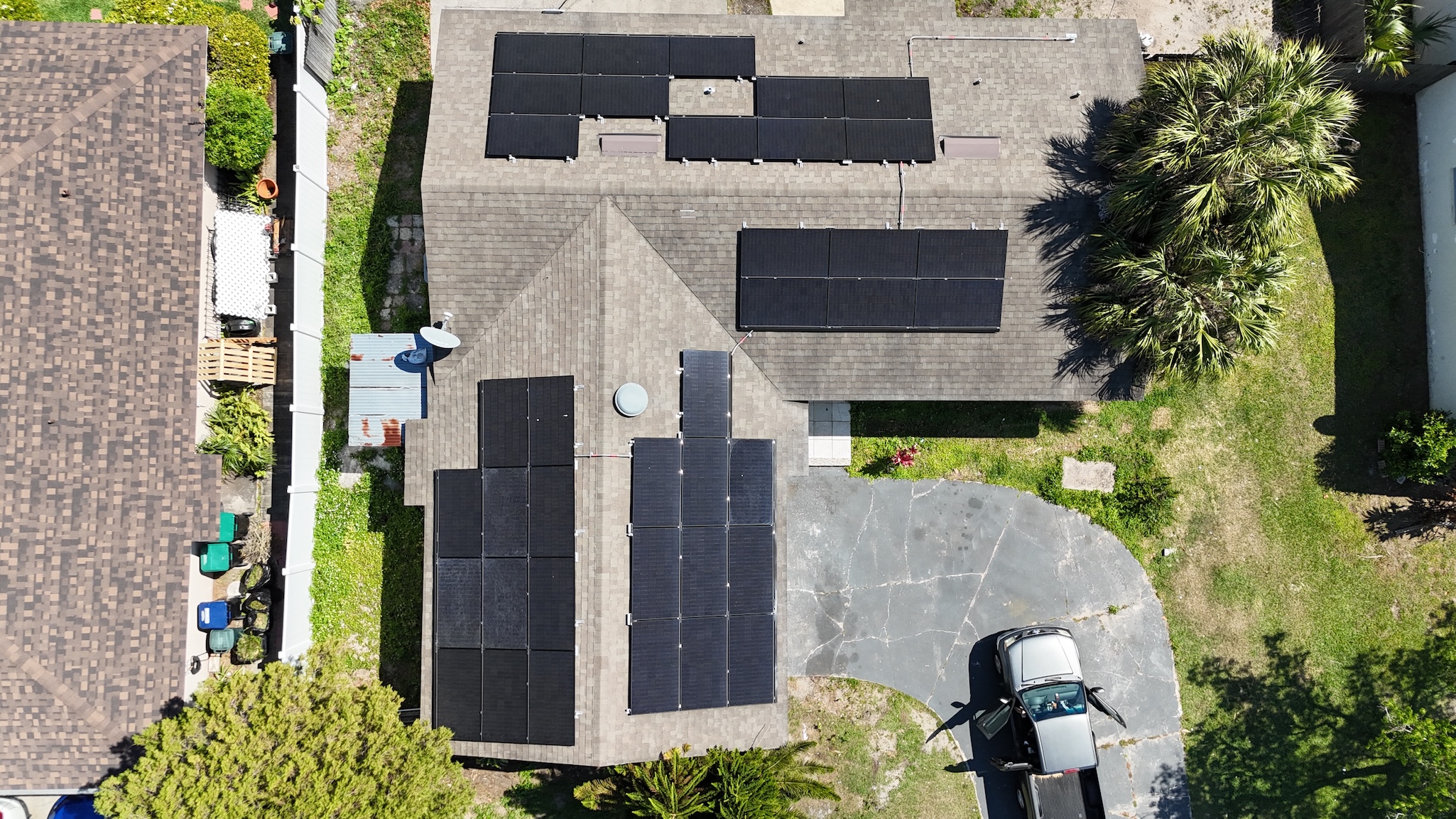☀️ Solar Shingles vs. Solar Panels: Which Is Better for Your Roof?
Thinking about going solar? You’re not alone—Florida homeowners are leading the charge toward renewable energy, with year-round sunshine and rising electric bills driving demand.
But now there’s a new question:
Solar shingles or solar panels—what’s better for your home and roof?
In this guide, we’ll compare the pros and cons of both, especially for Florida’s hot, storm-prone climate.
⚡ Quick Breakdown
|
Feature |
Solar Shingles |
Solar Panels |
|
Appearance |
Sleek, low-profile (looks like a roof) |
Bulkier, mounted on top of the roof |
|
Energy Efficiency |
Moderate (14–18% typical) |
Higher (18–22% typical) |
|
Installation Cost |
Higher upfront |
More affordable per watt |
|
Roof Compatibility |
Best on new roofs |
Can be added to existing roofs |
|
Lifespan |
25–30 years |
25–30 years |
|
Wind Resistance |
High (if integrated well) |
Good (depends on racking system) |
|
Maintenance |
Less accessible for repairs |
Easier to access and service |
🏠 What Are Solar Shingles?
Solar shingles (also called building-integrated photovoltaics or BIPV) look like traditional asphalt shingles but generate electricity like solar panels. Brands like Tesla Solar Roof, GAF Energy Timberline Solar, and CertainTeed are leading the market.
They’re ideal for:
- Homeowners planning a full roof replacement
- Those in HOA-regulated neighborhoods
- People prioritizing aesthetics
✅ Pros:
- Sleek, modern look
- Dual-purpose: roofing + energy
- Highly durable and storm-rated
❌ Cons:
- Higher installation costs ($30,000–$70,000+)
- Fewer local installers
- Not as efficient as top-tier solar panels
☀️ What Are Solar Panels?
Traditional solar panels are mounted on top of your existing roof. They’re the most common and proven option, with lots of local contractors, competitive pricing, and clear incentives.
They’re ideal for:
- Homeowners with a newer roof
- People looking for maximum savings per watt
- Budget-conscious buyers
✅ Pros:
- More affordable ($15,000–$30,000 typical)
- Easier to upgrade or expand
- Can be installed quickly (1–2 days)
❌ Cons:
- Bulky appearance
- May require extra roof penetrations
- Some HOA pushback in certain neighborhoods
🌴 Florida Considerations
🌬️ Hurricane Risk
Both solar shingles and panels can meet Florida Building Code and wind-uplift requirements, but panels require more racking hardware, which can become vulnerable in severe storms. If installed properly, both systems are storm-rated.
☀️ Sunshine & ROI
Florida’s high sun exposure = faster payback period. Even with higher upfront costs, both systems typically pay for themselves in 8–12 years.
🏡 Insurance
Adding solar panels or shingles may increase your home’s replacement cost—so notify your insurer and ask about required documentation.
💵 Tax Incentives & Financing
You may be eligible for:
- 30% Federal Solar Tax Credit (ITC)
- Local utility rebates (varies by county)
- PACE financing (Property Assessed Clean Energy – no money down)
- Net metering from FPL, Duke, and other Florida utilities
Pro tip: Solar shingles may qualify for roofing + energy credits, especially if installed during a full roof replacement.
🧠 Final Recommendation
|
If You… |
Choose… |
|
Need a new roof + want solar |
✅ Solar Shingles |
|
Want maximum savings per watt |
✅ Solar Panels |
|
Care about aesthetics and HOA rules |
✅ Solar Shingles |
|
Need fast install and easier servicing |
✅ Solar Panels |
📞 Ready to Compare Your Options?
At TheBestRoofs.com, we help Florida homeowners:
✔️ Explore both solar shingles and panel systems
✔️ Plan roof + solar installs in one seamless project
✔️ Understand incentives and utility savings
✔️ Choose materials built to withstand Florida storms
👉 Click here to request your free solar roofing consultation

